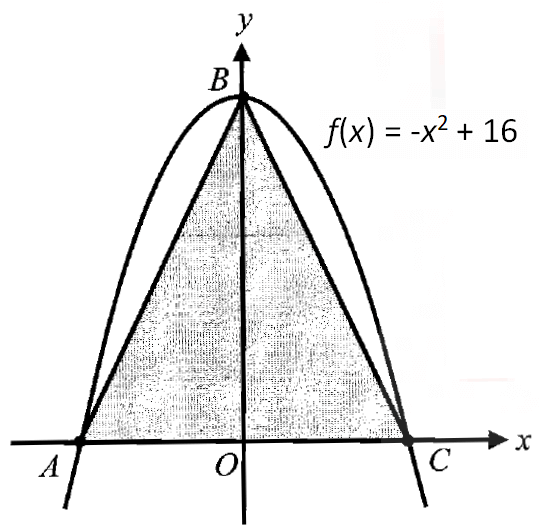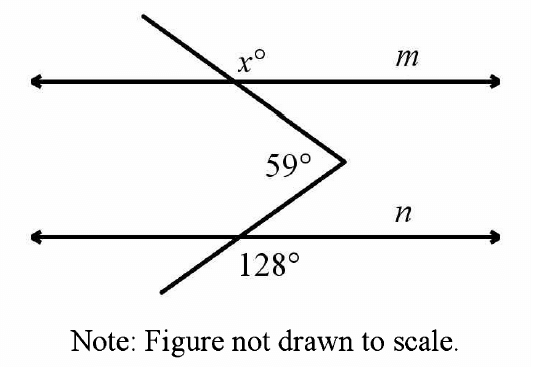TIME AND WORK PROBLEMS
1. If a person can do a piece of work in ‘m’ days, he can do ¹⁄m part of the work in 1 day.
2. If the number of persons engaged to do a piece of work be increased (or decreased) in a certain ratio the time required to do the same work will be decreased (or increased) in the same ratio.
3. If A is twice as good a workman as B, then A will take half the time taken by B to do a certain piece of work.
4. Time and work are always in direct proportion.
more work ----> more time
less work ----> less time
5. A takes m days and B takes n days to complete a work. If they work together, then the formula to find the number of days taken by them to complete the work is
Problem 1 :
A can do a piece of work in 15 days while B can do it in 10 days. How long will they take together to do it?
Solution :
Using the above formula, if they work together, number of days taken to complete the work is
= 6
Problem 2 :
A and B can complete a work in 6 days. B and C can complete the same work in 8 days. C and A can complete in 12 days. How many days will take for A, B and C combined together to complete the same amount of work ?
Solution :
From the given information, we can have
(A + B)'s 1 day work = ⅙
(B + C)'s 1 day work = ⅛
(A + C)'s 1 day work = ¹⁄₁₂
(A + B + B + C + A + C)'s 1 day work = ⅙ + ⅛ + ¹⁄₁₂
(2A + 2B + 2C)'s 1 day work = ⅙ + ⅛ + ¹⁄₁₂
2 ⋅ (A + B + C)'s 1 day work = ⅙ + ⅛ + ¹⁄₁₂
L.C.M of (6, 8, 12) = 24.
2(A + B + C)'s 1 day work = ⁴⁄₂₄ + ³⁄₂₄ + ²⁄₂₄
2(A + B + C)'s 1 day work = ⁹⁄₂₄
2(A + B + C)'s 1 day work = ⅜
(A + B + C)'s 1 day work = ³⁄₁₆
Time taken by A, B and C together to complete the work is
= ¹⁶⁄₃
= 5⅓ days
Problem 3 :
A and B can do a work in 15 days, B and C in 30 days and A and C in 18 days. They work together for 9 days and then A left. In how many more days, can B and C finish the remaining work ?
Solution :
From the given information, we can have
(A + B)'s 1 day work = ¹⁄₁₅
(B + C)'s 1 day work = ¹⁄₃₀
(A + C)'s 1 day work = ¹⁄₁₈
(A + B + B + C + A + C)'s 1 day work = ¹⁄₁₅ + ¹⁄₃₀ + ¹⁄₁₈
(2A + 2B + 2C)'s 1 day work = ¹⁄₁₅ + ¹⁄₃₀ + ¹⁄₁₈
2(A + B + C)'s 1 day work = ¹⁄₁₅ + ¹⁄₃₀ + ¹⁄₁₈
L.C.M of (15, 30, 18) = 90.
2(A + B + C)'s 1 day work = ⁶⁄₉₀ + ³⁄₉₀ + ⁵⁄₉₀
2(A + B + C)'s 1 day work = ¹⁴⁄₉₀
2(A + B + C)'s 1 day work = ⁷⁄₄₅
(A + B + C)'s 1 day work = ⁷⁄₉₀
Then, the amount of work completed by A, B and C together in 9 days is
= 9 ⋅ ⁷⁄₉₀
= ⁷⁄₁₀
Amount of work left for B and C to complete is
= ³⁄₁₀
Number of days that B will take to finish the work is
= amount of work/part of the work done in 1 day
= ³⁄₁₀ ÷ ¹⁄₃₀
= ³⁄₁₀ ⋅ ³⁰⁄₁
= 9
Problem 4 :
A contractor decided to complete the work in 90 days and employed 50 men at the beginning and 20 men additionally after 20 days and got the work completed as per schedule. If he had not employed the additional men, how many extra days would he have needed to complete the work?
Solution :
The work has to completed in 90 days (as per schedule).
Total no. of men appointed initially = 50.
Given : 50 men have already worked for 20 days and completed a part of the work.
If the remaining work is done by 70 men (50 + 20 = 70), the work can be completed in 70 days and the total work can be completed in 90 days as per the schedule.
Let 'x' be the no. of days required when the remaining work is done by 50 men.
For the remaining work,
70 men ----> 70 days
50 men -----> x days
The above one is a inverse variation.
Because, when no. of men is decreased, no. of days will be increased.
By inverse variation, we have
70 ⋅ 70 = 50 ⋅ x
4900 = 50x
98 = x
So, if the remaining work is done by 50 men, it can be completed in 98 days.
So, extra days needed = 98 - 70 = 28 days.
Problem 5 :
Three taps A, B and C can fill a tank in 10, 15 and 20 hours respectively. If A is open all the time and B and C are open for one hour each alternately, find the time taken to fill the tank.
Solution :
From the given information, we can have
A's 1 hour work = ⅒
B's 1 hour work = ¹⁄₁₅
C's 1 hour work = ¹⁄₂₀
In the first hour, we have
(A + B)'s work = ⅒ + ¹⁄₁₅
(A + B)'s work = ³⁄₃₀ + ²⁄₃₀
(A + B)'s work = ⁵⁄₃₀
(A + B)'s work = ⅙
In the second hour, we have
(A + C)'s work = ⅒ + ¹⁄₂₀
(A + C)'s work = ²⁄₂₀ + ¹⁄₂₀
(A + C)'s work = ³⁄₂₀
Amount of work done in each two hours is
= ⅙ + ³⁄₂₀
= ¹⁰⁄₆₀ + ⁹⁄₆₀
= ¹⁹⁄₆₀
Amount of work done :
In the first 2 hours : ¹⁹⁄₆₀
In the first 4 hours : ¹⁹⁄₆₀ + ¹⁹⁄₆₀ = ³⁸⁄₆₀
In the first 6 hours : ¹⁹⁄₆₀ + ¹⁹⁄₆₀ + ¹⁹⁄₆₀ = ⁵⁷⁄₆₀
After 6 hours, the remaining work will be
= ³⁄₆₀
= ¹⁄₂₀
¹⁄₂₀ is the small amount of work left and A alone can complete this.
Time taken by A to complete this 1/20 part of the work is
= amount of work/part of work done in 1 hour
= ¹⁄₂₀ ÷ ⅒
= ¹⁄₂₀ ⋅ ¹⁰⁄₁
= ½ hours
So, A will will take half an hour (or 30 minutes) to complete the remaining work ¹⁄₂₀.
So, total time taken to complete the work is
= 6 hours + 30 minutes
= 6½ hours
Kindly mail your feedback to v4formath@gmail.com
We always appreciate your feedback.
©All rights reserved. onlinemath4all.com
Recent Articles
-
Digital SAT Math Problems and Solutions (Part - 143)
Apr 13, 25 12:01 PM
Digital SAT Math Problems and Solutions (Part - 143) -
Quadratic Equation Problems with Solutions
Apr 12, 25 08:21 PM
Quadratic Equation Problems with Solutions -
Digital SAT Math Problems and Solutions (Part - 142)
Apr 11, 25 06:26 PM
Digital SAT Math Problems and Solutions (Part - 142)

